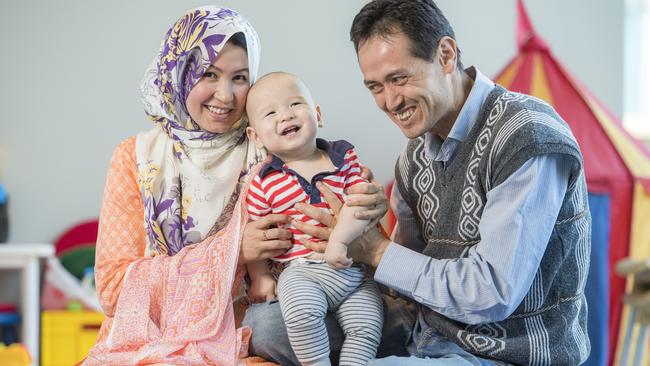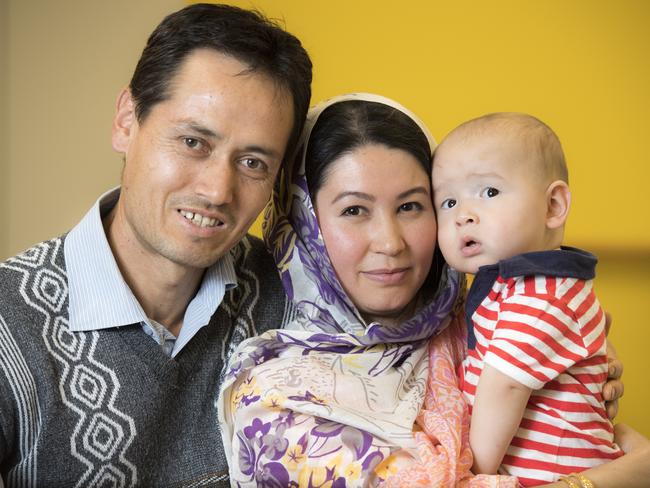Spinal muscular atrophy wonder drug lets Kumail defy odds
PHYSIOTHERAPISTS cried when they saw baby Kumail Wakil at his last check-up. They expected him to be struggling to breathe.

VIC News
Don't miss out on the headlines from VIC News. Followed categories will be added to My News.
PHYSIOTHERAPISTS cried when they saw baby Kumail Wakil at his last check-up.
After he was diagnosed with Spinal muscular atrophy — the childhood version of Motor Neurone Disease — they expected his whole body to be floppy and him struggling to breathe.
Kumail’s eight-year-old sister Rubab was in a wheelchair at his age from a less severe form of the same incurable and progressive condition.
Instead, after he became the first Australian child to be given compassionate access to a new gene therapy at the Royal Children’s Hospital as a six-week-old — before he started showing symptoms — therapists saw a strong and healthy 12-month-old who has so far reached all his developmental milestones.
The international trial of the drug Spinraza was stopped halfway through in October when interim results stunned doctors, and it was only ethical to also give the drug to those on placebo.

RCH’s director of neurology, Professor Monique Ryan said the drug’s “dramatic” effects should give hope to the 10 Victorian children born each year with the most severe Type 1, for which affected children usually don’t reach their third birthday.
“I’ve never been involved in a trial like this where it is completely obvious that it is working,” Prof Ryan said.
“It’s early days, but these were babies who are clearly becoming stronger and obtaining milestones we have not seen babies with this condition obtain before.”
The spinal cord injection, given every four months, aims to replace to missing survival motor neuron protein that is critical for the nerves that control muscles.
Mohammad Wakil said while they feared the worst for their son after already seeing their daughter struggle, they could hardly believe their eyes when Kumail started gaining strength.
“Our hope was not pretty strong when he was born. But as time past, we saw he was crawling, he was moving his arms and legs as a normal child,” Mr Wakil said.
“The main thing we wish is for him to stand on his feet and to have a healthy life.”
While the drug is not a cure, Prof Ryan said the hope was that Spinraza could buy children time for the next iterations of this medication to come along, to be used in combination with other promising drugs to further improve their quality and length of life.
The extended access program will allow RCH patients with Type 1 to access it as needed, with some children with the less severe Type 2 to also receive it this year.


